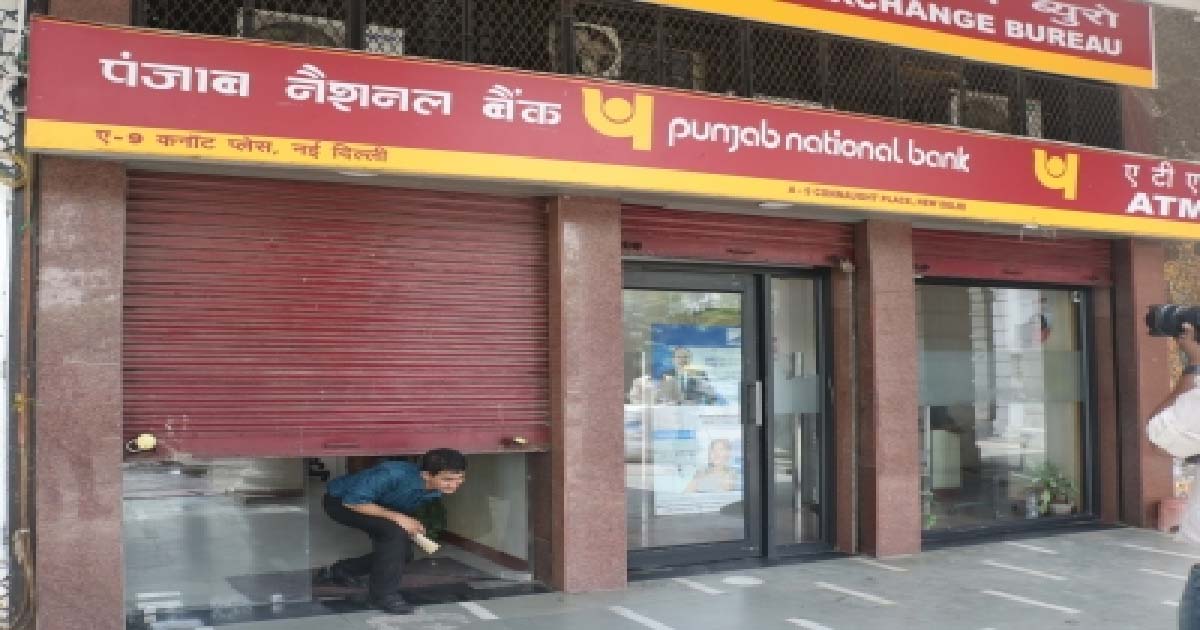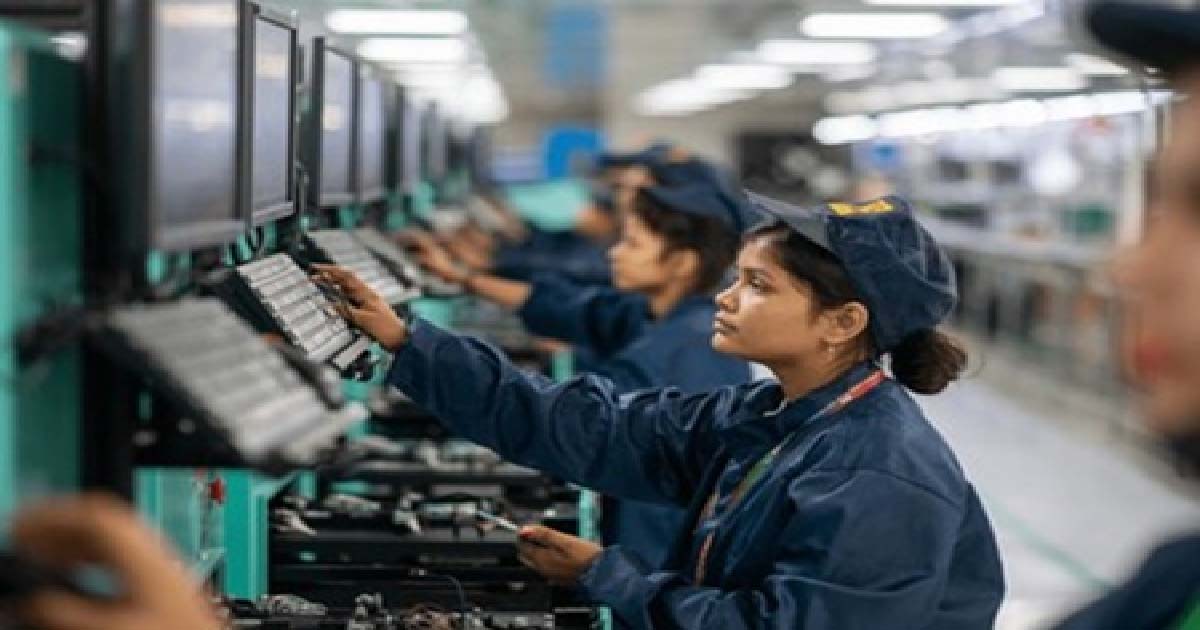Business
Selloff 2022: Foreign Portfolio Investors (FPI) or Fair Weather Friends

The sharpest rate hike of 75 basis points since 1994 by the US Federal Reserve is the latest flashpoint in the global and Indian stock markets reeling under massive selling pressure of foreign investors.
Indian and global markets too slumped on Thursday over recessionary fear after the US Fed raised interest rates by 75 bps, the biggest increase since 1994. Further, Fed Chair Jerome Powell signalled another big move (50-75 bps hike) next month, intensifying its fight to contain rampant inflation.
It has sharply increased the interest rate target to 3.4 per cent for 2022 and 3.8 per cent for 2023, according to Motilal Oswal Financial Services.
Sorbh Gupta, Fund Manager, Equity, Quantum AMC, said in a note that May has seen FPI outflows of $5.17 billion. This has been the thirst worst month of FPI flows since FPI investments were allowed to invest in India in 1991.
“Interestingly, of the five ‘worst ever’ months of FPI flows, 4 have come in this calendar year. Domestic institutional investors (mutual funds and insurance put together) have been net buyers for May 2022 to the tune of $6.57 billion,” he added.
Equity investors who have invested in equity markets in the last two-three years have seen mostly positive returns and a swift recovery after every correction. The current volatility and slow grind of the markets will test their patience, Gupta said.
S&P BSE SENSEX declined by (-) 2.16 per cent on a total return basis in the month of May 2022.
It has underperformed developed market indices like S&P 500 (0.18 per cent) and Dow Jones Industrial Average Index (0.32 per cent). S&P BSE SENSEX has also underperformed MSCI Emerging Market Index (0.46 per cent). The broader market has been weaker, S&P BSE Midcap Index has declined by (-) 5.5 per cent for the month & S&P BSE Small cap Index declined by 7.8 per cent.
The power and metal sectors which have been hogging the limelight over the past few months were the biggest losers, falling by 11.3 per cent and 15.5 per cent, respectively. The BSE Auto Index was the only sectoral indices in the green moving up by 4.9 per cent.
Yes Bank said in a note that the higher current account deficit will not be fully covered by capital flows in FY23. India has already witnessed FII outflows of $30.5 billion since October 2021 and $9.4 billion since April 2022, from both debt and equity.
“Even as we expect FDI flows to stay on a strong footing (though weaker than the previous fiscal) and short-term trade finance to remain buoyant, overall flows under the capital account is expected at around $55 billion in FY23, compared to $94 billion in FY 22,” the note said.
The risks of a lower BoP balance cannot be ruled out in the event of larger outflows than being currently anticipated.
As per the IIF, capital flows to EM, including India, are expected to slow to $972 billion this year from $1.68 trillion in 2021, a decline of 42 per cent YoY.
Excluding China, the net capital flows are likely to drop to $645 billion, down from $1 trillion last year. The underlying weak fundamentals of the EM economies on account of higher oil prices, high Current Account Deficit (CAD), elevated general government debt to GDP ratio and limited fiscal space to support growth is likely to limit the possibility of much capital pull into the region, Yes Bank said.
In FY 2021-22 alone, FIIs sold their investments for approximately worth Rs 1.22 lakh crore as against FY 2020-21 where they invested around Rs 2.67 lakh crore. There are multiple reasons because of which FIIs started pulling out their investments from the Indian markets since the last financial year, Angel One said in a note.
The Russia-Ukraine war took centre stage in the last week of February. Uncertainties and geopolitical complexities that arose due to this war have created a fear among foreign investors. This has resulted in the FIIs outflows in India.
India is the third largest consumer of crude oil and is also the third largest importer of crude oil across the globe. The heat of the Russia-Ukraine war had a massive impact on the global economy as the crude oil prices spiked. These soaring crude prices turned the Indian stock market volatile and resulted in the increase in the costs of transportation and an increase in inflation. This impact on the economy and imports influenced foreign investors’ sentiments which pushed them to pull their money out of the Indian stock market, Angel One said in a note.
Indian markets are aligned with the US and the other global markets which means if the other markets start falling, Indian markets will also be impacted. Among the major reasons that are recently affecting the US economy are higher inflation, an expected rise in the interest rate to control inflation and rising inflation has led to a sharp jump in the US bond yields.
Business
PNB declares Rs 2,434 crore alleged loan fraud against former promoters of Srei firms

New Delhi, Dec 27: Punjab National Bank (PNB) has declared a Rs 2,434 crore alleged loan fraud by the former promoters of Srei Equipment Finance and Srei Infrastructure Finance.
In a late evening exchange filing, the state-run PNB said that “Pursuant to the applicable provisions of SEBI (LODFR) Regulations, 2015 and the Bank’s Policy for determining materiality of events/information required to be reported to the Stock Exchanges, it is hereby informed that the bank has reported borrowal fraud to RBI against the erstwhile promoters of Srei Equipment Finance and Srei Infrastructure Finance”.
PNB said that of the total fraudulent borrowings, Rs 1,240.94 crore is related to Srei Equipment Finance and the remaining Rs 1,193.06 crore is related to Srei Infrastructure Finance.
The public sector lender also said it has 100 per cent provisions for these loans. The bank said the declaration of these two accounts as frauds is based on a forensic audit, which pointed to irregularities such as loans to connected parties and potential evergreening of loans.
However, Srei group has challenged the forensic audit report as the basis for the fraud classification, noting the matter is subjudice.
Other banks such as Punjab & Sind Bank, Bank of Baroda, and Union Bank of India have also earlier declared a loan fraud in connection with Srei companies.
The Srei group has been undergoing an insolvency resolution process since 2021, and the National Company Law Tribunal has approved a resolution plan submitted by the National Asset Reconstruction Company in 2023. The Srei group was sent to the NCLT by the Reserve Bank in October 2021 after it had found governance issues and defaults and the regulator superseded the boards of Srei Infrastructure Finance and Srei Equipment Finance.
In February 2023, NARCL emerged as the successful bidder for SIFL and SEFL which together owed Rs 32,750 crore to lenders. NARCL won the bid in February 2023, got the NCLT approval in August 2023, and finalised the acquisition by January 2024.
Business
India 2nd largest mobile manufacturing country in the world: Minister

New Delhi, Dec 27: India has ramped up electronics production six-fold and is the second largest mobile manufacturing country in the world, Union Minister of Electronics and Information Technology Ashwini Vaishnaw said on Saturday.
In multiple posts on social media platform X, Vaishnaw said that the country has increased electronic exports eightfold over the past 11 years, mainly driven by policy support from the Production Linked Incentive Scheme.
The PLI scheme for Large Scale Electronics Manufacturing has attracted over Rs 13,475 crore in investment and helped achieve production of about Rs 9.8 lakh crore in the electronics sector, driving manufacturing, jobs, and exports, he said.
Vaishnaw highlighted that “over 1.3 lakh jobs were created in the last five years and that electronics is now India’s third‑largest export category, climbing from seventh place”.
He said the country was initially focusing on finished products, but the Electronics Component Manufacturing Scheme supported a shift to “building capacity for modules, components, sub-modules, raw materials, and the machines that make them.”
The Electronics Component Manufacturing Scheme has 249 applications representing Rs 1.15 lakh crore in investment, Rs 10.34 lakh crore in production, and creating 1.42 lakh jobs, the post said, adding it is the highest-ever investment commitment in India’s electronics sector, indicating industry confidence.
Vaishnaw also noted progress in the semiconductor sector, saying ten units have been approved, with three already in pilot or early production. The minister said that “fabs and ATMPs from India will soon supply chips to phone and electronics manufacturers”.
“Electronics manufacturing created 25 lakh jobs in the last decade. This is the real economic growth at the grassroots level,” the minister said.
“As we scale semiconductors and component manufacturing, job creation will accelerate. From finished products to components, production is growing. Exports are rising. Global players are confident. Indian companies are competitive. Jobs are being created. This is ‘Make in India’ impact story!” he noted.
Business
Indian stock market ends holiday-shortened week in positive terrain

Mumbai, Dec 27: Indian equity markets ended the week in a positive terrain, buoyed by expectations of stronger domestic demand, a favourable liquidity outlook and optimism over potential Fed policy easing in 2026, analysts said on Saturday.
The holiday-shortened week opened with a bullish undertone; however, momentum tapered off as the days progressed.
On Friday, Sensex closed at 85,041.45, slipping 367.25 points or 0.43 per cent. Nifty also ended in the red, falling 99.80 points or 0.38 per cent to settle at 26,042.30.
According to market watchers, the year-end lull kept trading largely range-bound, with hopes for a Santa Claus rally diminishing amid the absence of fresh catalysts, limited progress in US–India trade talks, and caution ahead of the upcoming earnings season.
“Sectoral trends were mixed, marked by selective profit booking across most segments, while metals, FMCG, and media stocks offered notable resilience,” said Vinod Nair, Head of Research, Geojit Investments Ltd.
Nifty 50 ended the week at 26,042, continuing to respect its long-term rising channel on the daily chart. The index remains comfortably above the 20-day EMA cluster, preserving the medium-term bullish structure, said analysts, adding that as long as Nifty sustains above the 26,000–25,900 support zone, the overall bias remains positive.
On the domestic front, RBI’s liquidity interventions, such as open market operations and a USD/INR buy–sell swap, helped stabilise the rupee, though persistent FII outflows continued to weigh on sentiment.
Meanwhile, gold advanced on safe-haven demand, while crude prices hovered near multi-year lows, though U.S. steps to tighten pressure on Venezuelan oil shipments could exert upward pressure in the near term
Looking ahead, market sentiment is likely to stay cautious as investors brace for the upcoming earnings season while remaining attuned to global developments and currency movements, said analysts.
Attention will also turn to next week’s data releases, including India’s industrial and manufacturing output figures, manufacturing PMI, and the US FOMC minutes, said Nair.
-

 Crime3 years ago
Crime3 years agoClass 10 student jumps to death in Jaipur
-

 Maharashtra1 year ago
Maharashtra1 year agoMumbai Local Train Update: Central Railway’s New Timetable Comes Into Effect; Check Full List Of Revised Timings & Stations
-

 Maharashtra1 year ago
Maharashtra1 year agoMumbai To Go Toll-Free Tonight! Maharashtra Govt Announces Complete Toll Waiver For Light Motor Vehicles At All 5 Entry Points Of City
-

 Maharashtra1 year ago
Maharashtra1 year agoFalse photo of Imtiaz Jaleel’s rally, exposing the fooling conspiracy
-

 National News1 year ago
National News1 year agoMinistry of Railways rolls out Special Drive 4.0 with focus on digitisation, cleanliness, inclusiveness and grievance redressal
-

 Maharashtra1 year ago
Maharashtra1 year agoMaharashtra Elections 2024: Mumbai Metro & BEST Services Extended Till Midnight On Voting Day
-

 National News1 year ago
National News1 year agoJ&K: 4 Jawans Killed, 28 Injured After Bus Carrying BSF Personnel For Poll Duty Falls Into Gorge In Budgam; Terrifying Visuals Surface
-

 Crime1 year ago
Crime1 year agoBaba Siddique Murder: Mumbai Police Unable To Get Lawrence Bishnoi Custody Due To Home Ministry Order, Says Report














